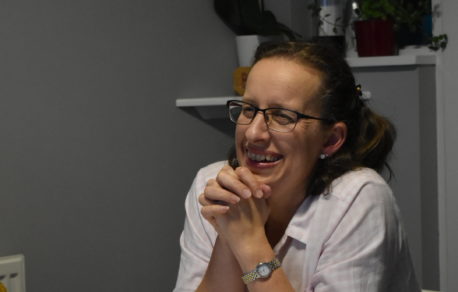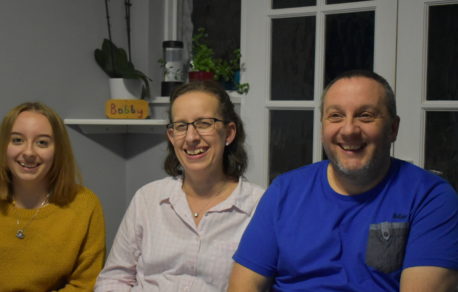
How do I talk to my friends and family about planning for my future?
How do I talk to my family and friends about planning for the future?
There is a famous quote by Benjamin Franklin in 1789, “but in this world nothing can be said to be certain, except death or taxes” and while the tax advisory industry has grown significantly over the last five years, not as much is said about planning for our later years and our eventual death.
Working in healthcare for many years I was often asked “but how do I start the conversation?”. As with so many things in life there is no single answer although many organisations suggest that the key to a successful conversation is planning,
- what you want to say
- a time and place for the conversation where people will feel relaxed
- a plan B for if the conversation is ended because of emotions or feeling that you are not getting anywhere.
Sometimes circumstances will dictate the urgency of a conversation and maybe there will only be five minutes to plan your thoughts. However, for many of us there will be a moment, maybe when chatting with a friend who has already thought about their end of life wishes which makes you realise that you haven’t either thought about or told anyone about your wishes or maybe because of a diagnosis of a life-limiting illness, when we realise that we need to have these conversations,
Whatever the reason there are a few simple guidelines which can help your planning
So, what do I need to talk about?
- Legal and financial matters
- Organ donation
- End of life care
- How you would like to be remembered
- Funeral plans
Legal and financial matters
Sorting out your affairs before you die ensures that your wishes will be carried out after your death and that your family and friends will be saved additional stress at a difficult and emotional time.
The first thing people will often consider is writing a will, it doesn’t need to be done by a solicitor and there is useful advice online from Wills – Citizens Advice to help you decide if you want to use a solicitor or not.
And it’s not just our physical assets that we need to consider, it’s important to think about your ‘digital assets’ too. This includes everything from your social media accounts and blogs to subscriptions for ancestry websites, streaming services like Spotify along with your PayPal accounts. Often there can be issues of access and/or awareness of the existence of online accounts. This is the main reason for preparing a digital or social media ‘will’ or ‘letter of wishes’. This should include details of all your online accounts, and wishes, for example, whether you want your Facebook site memorialised, or closed. There is more information on this subject to be found at For the public – Digital Legacy Association
It’s also important to think about who you would want to help you make decisions about your life if you weren’t able to manage this for yourself. A “Power of attorney” is a legal document that gives someone the authority to help you make decisions or to make them and take actions for you if you are unable to do these things yourself. There is helpful advice available from many sources for instance Power of attorney | Independent Age
End of life care
It’s important to consider the kind of care you would like towards the end of your life to ensure you live as well as you can until you die. This includes where you would like to die, whether you wish to continue with any life-prolonging treatment or if you would like to donate any of your organs after your death. It’s important to do this earlier rather than later just in case you are unable to make decisions for yourself in the future. You can do this by making an Advance Decision. This can be made by anyone of sound mind over 18 years old (16 in Scotland).
There are many organisations who offer support in this area including www.dyingmatters.org
How would you like to be remembered?
Sometimes people like to leave personal messages for people they are close to or maybe a video. Perhaps you would like to create a “memory box” for a grandchild or letters for significant events to come in their lives like their 18th birthday? Leaving a gift in your will for a charity whose work you have supported can also tell your family something about you and the causes you believed in. It’s important to talk to people about where they can find these things when the time is appropriate.
What do I want to happen at my funeral?
There are now many options available for your funeral from natural burial grounds to the more traditional burial or cremation and spreading of ashes – did you know you don’t have to employ a funeral director Natural Death Centre .org – What is a good funeral?. However you decide you would like your funeral to be it is important that you let your friends, family or solicitor know what you plans are. Many organisations offer a simple free form to help you get your wishes down on paper such as My Funeral Wishes from Dying Matters or using a software system like MyWishes – Funeral planning software
So how do I start the conversation
Sometimes it’s possible to start the conversation by referring to storyline in a film such as The Bucket List in 2007, or an event in the news, for instance film star Chadwick Boseman dying without a will in 2020, “I read that that young film actor died without a will and it made me think maybe I should get round to doing mine……..”.
Over the last eighteen months we’ve all had to come to terms with talking to friends and family on the phone or through video calls and have experienced the difficulties that can arise. So, if possible, it’s best to have these conversations in person
Ensuring that you have enough time to talk, potentially without interruptions can also be important so plan when and where, depending on who you are talking with. It may be appropriate to talk to a friend while you are out for walk but for a group you my want to think about a coffee and chat approach.
You might also want to give friends and family the chance to get used to the idea of the content of the conversation rather than being surprised or feeling confronted. “I’m thinking about my plans for retirement, can we talk about them sometime soon/this week?”.
Also think about who you would like to be part of this conversation, do you talk to your family altogether or individually? Some of the conversations may seem more daunting if for instance someone in the conversation is suffering from memory loss or confusion or is a child and may need additional planning but are still important. Do you feel the need for someone to support you, maybe a professional such as a solicitor if some of the things you want to discuss are technical such as lasting power of attorney?
It’s also important to remember that this doesn’t have to be a once and for all conversation – if people become uncomfortable or stuck then, if possible, take some timeout or arrange to meet again.
And finally remember that most of the plans you have been discussing can change and so once the door has been opened keep the conversations going
Further help
All of these suggestions are also helpful if you need to start a conversation with a friend or relative about their future plans – more help and advice are available from the links below


